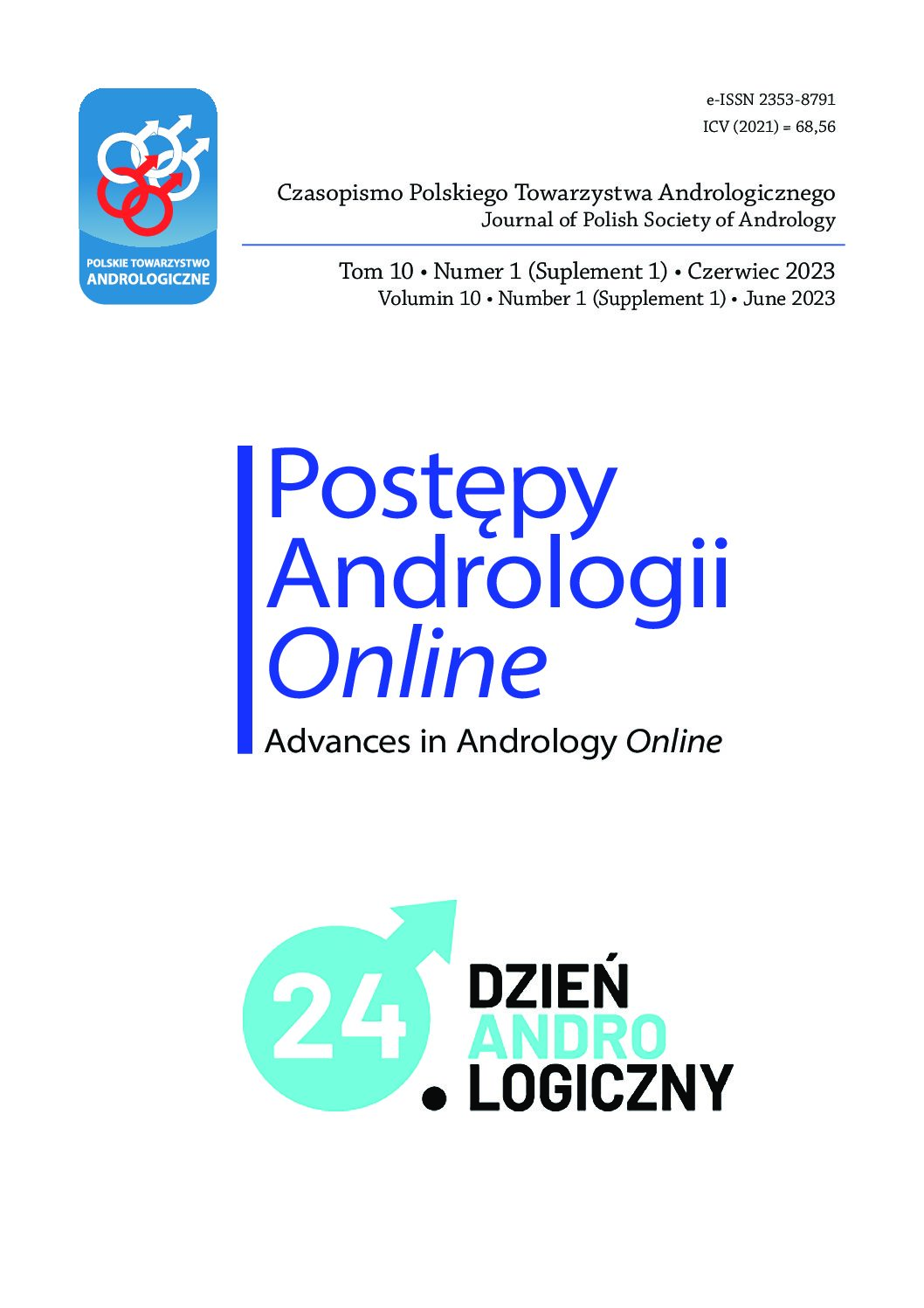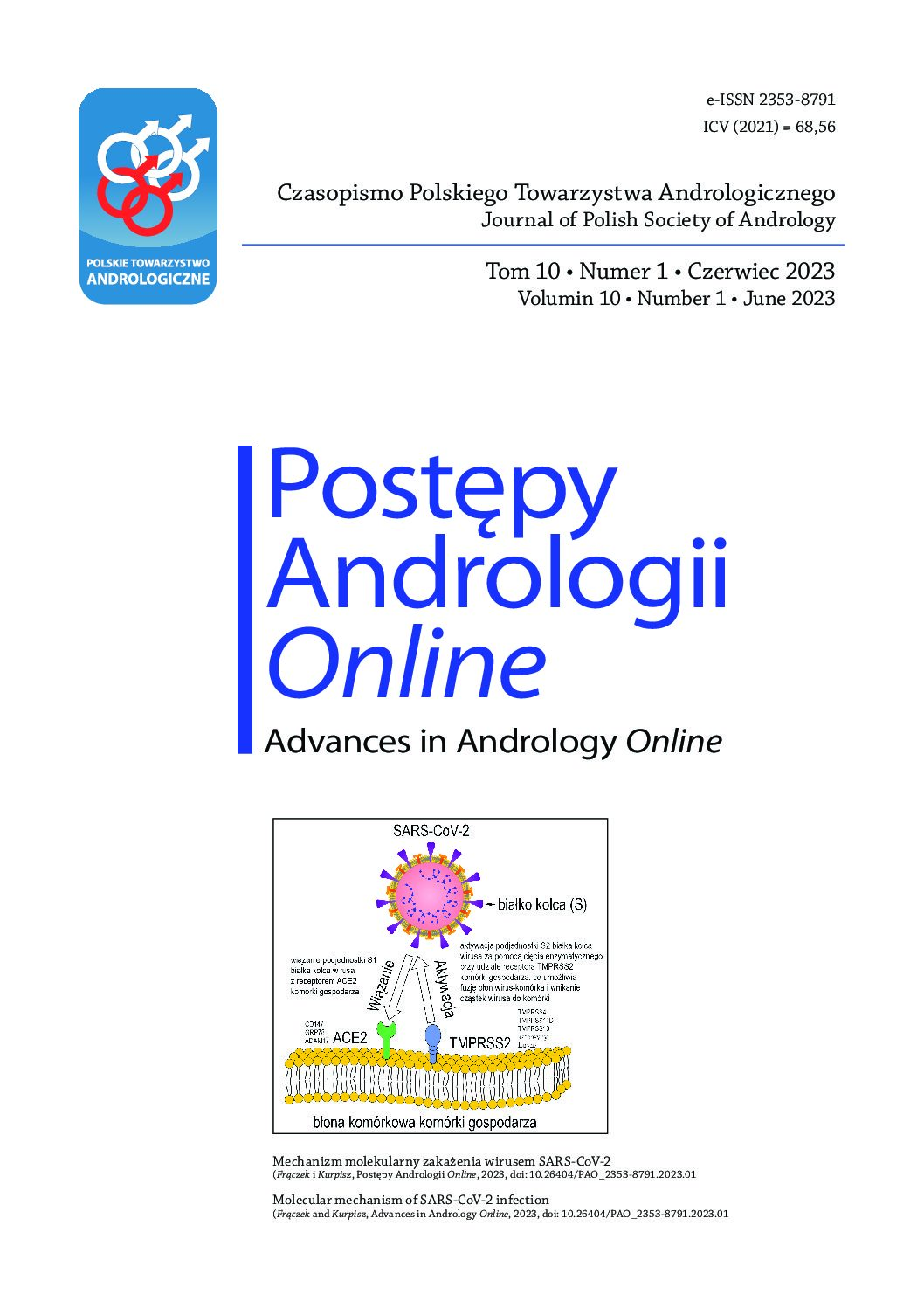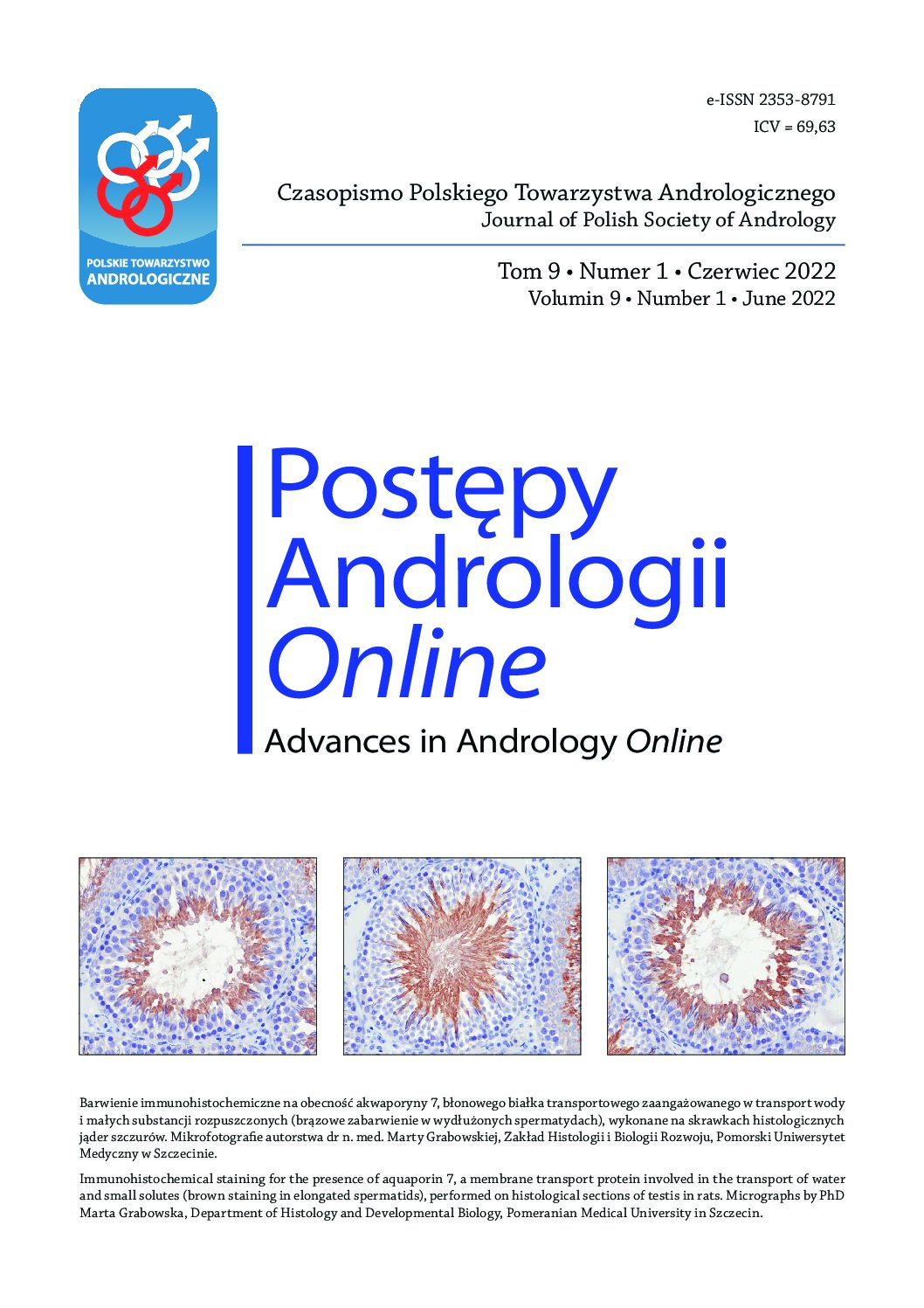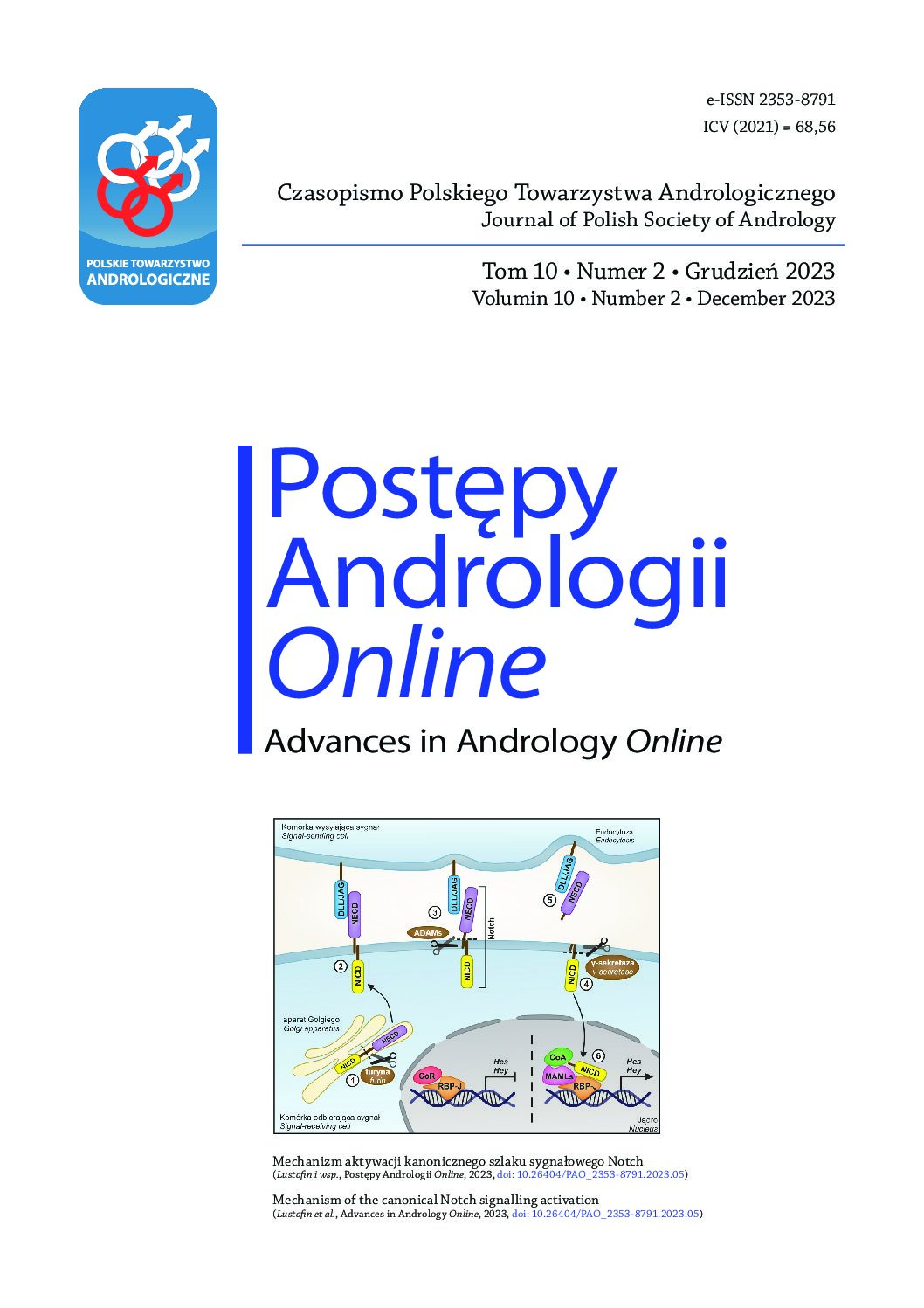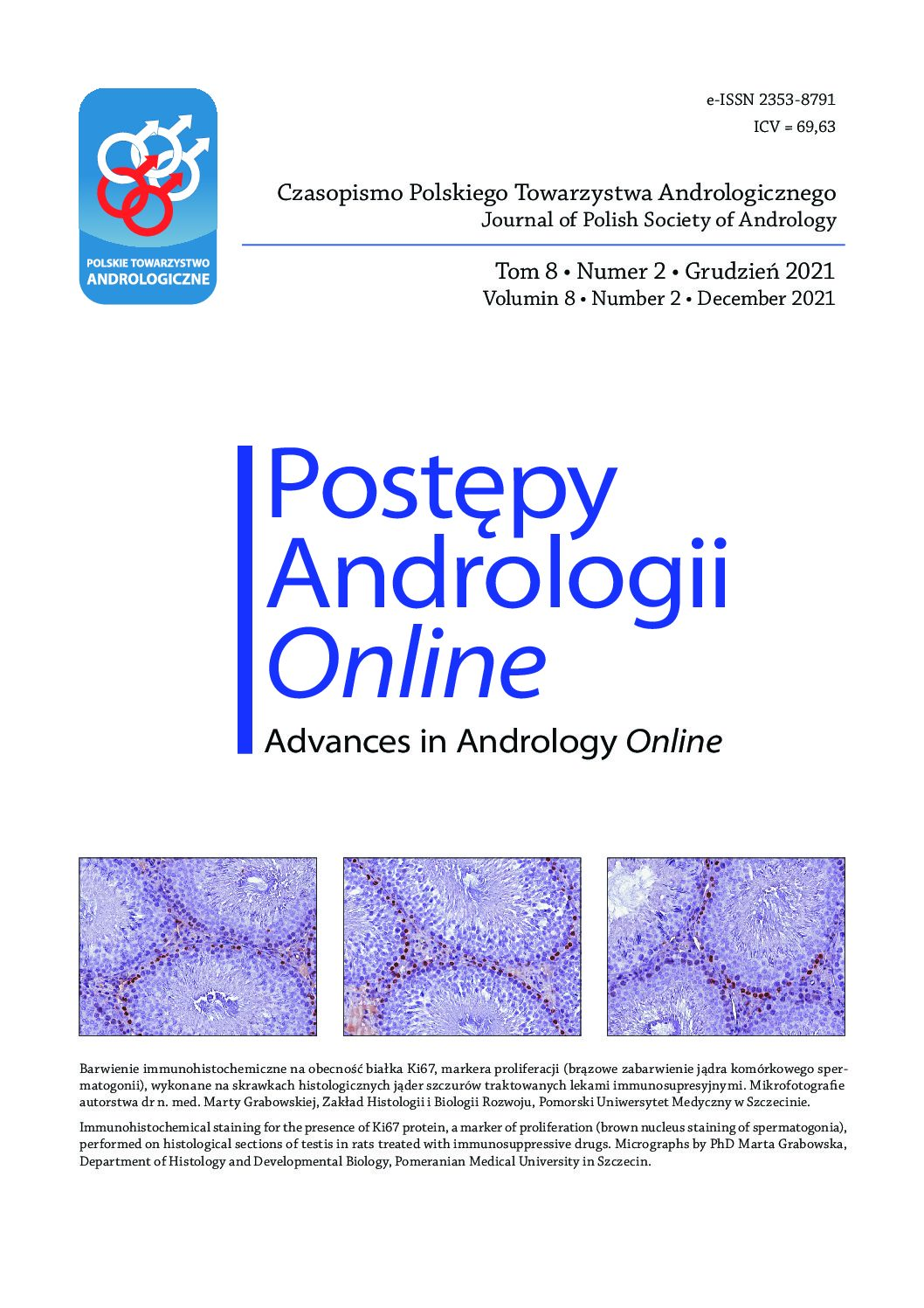The influence of human sperm chromatin status on in vitro fertilization outcome
The following article is a continuation of pervious one (Post Androl Online, 2020, 7(1), 30–43) and contains a compilation of scientific reports concerning the impact of human sperm chromatin quality on in vitro fertilization outcomes. In this paper, the results of commonly used molecular sperm chromatin were presented. Furthermore, the relationships between sperm chromatin maturity/ integrity and the fertilization, embryo development, the chance of getting pregnant, risk of miscarriage and chance of live birth were widely discussed. Most authors reports that in many cases the increase in the level of sperm chromatin damage adversely affects embryo development and the course of pregnancy. However, the results are not always in line and obvious. There are scientific papers in which the abnormalities of the sperm chromatin do not necessarily affect all of the embryo development stages and the course of pregnancy. Moreover, some authors do not confirm the existence of a associations between the sperm chromatin status and the in vitro fertilization outcomes. It has been suggested that the inconsistency of the obtained data may result from: 1) different methods used for male gametes selection, 2) different in vitro fertilization procedures, 3) diverse sperm chromatin tests and 4) different statistical tools used to analyze the obtained data. Moreover, it should be highlighted that the findings presented in the scientific papers were carried out on the high heterogeneity groups (different subjects, age structure of enrolled individuals and causes of infertility). However, in many recent reports, the authors indicate that high sperm chromatin quality is an important determinant of reproductive success in in vitro conditions. According to the level of sperm chromatin abnormalities proper therapeutic scenario should be chosen.
